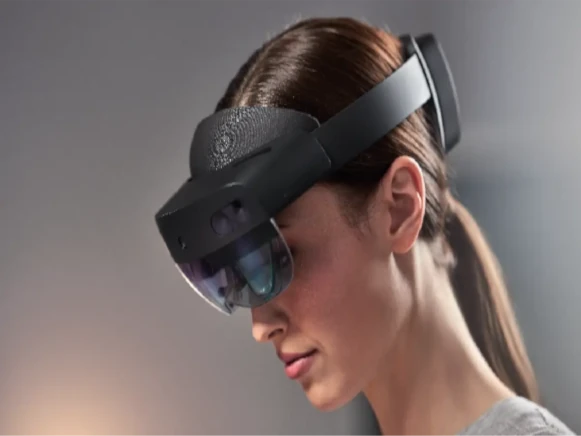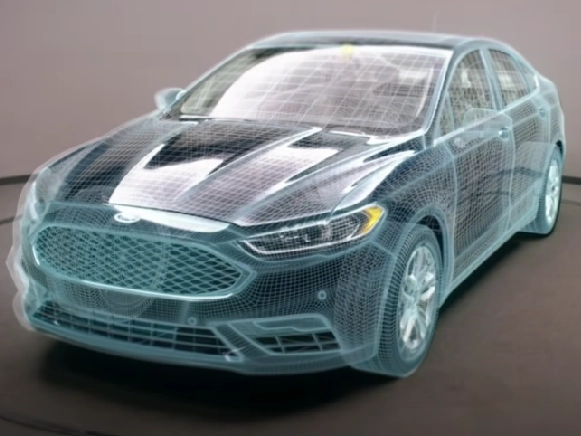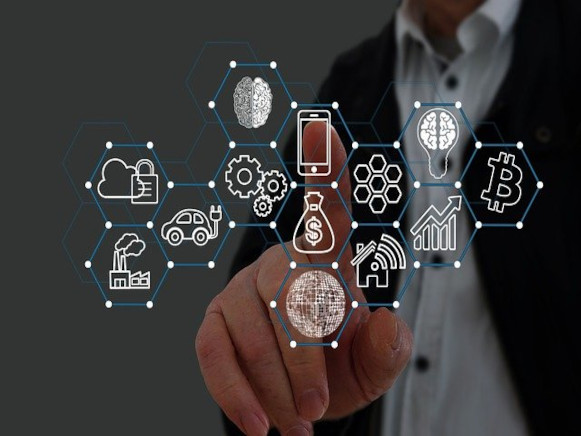HoloLens areas of application in e-commerce
So far, most developers do not see the HoloLens Microsoft AR glasses as a primary solution for home users in the mass market. Although this perspective is certainly given in the medium term, most companies have so far focused on B2B applications. In addition to the possibilities of augmented reality HoloLens applications in the area of development and production, voices are increasingly being raised that would like to use the HoloLens in e-commerce.
Why is the HoloLens an interesting solution in e-commerce?
Using augmented reality with data glasses has advantages in many areas. Augmented reality applications can already be used sensibly in some sectors. Teachers can convey content in a much more interesting and sustainable way, learners have the opportunity to understand complex structures and mechanisms on the spot.
In Industry 4.0, the HoloLens already plays a prominent role. What applies to research, development and project implementation is also interesting for e-commerce. Although it is not expected that private individuals will be able to do their shopping from their sofa with a HoloLens in the next few years, this is nevertheless a realistic long-term perspective. However, the HoloLens can already be used realistically in the B2B sector.
For the first time, customers have the possibility to virtually disassemble complex machines into their components without having to ask an expert. There is no longer any need to rummage through technical drawings or complete schematic diagrams on the computer – each required spare part can be easily identified and selected. This saves a lot of time when procuring spare parts for automotive workshops or in industrial manufacturing.

No more searching lists with the HoloLens in e-commerce

Once the necessary 3D models of relevant machines and other goods are captured in a company’s inventory, spare parts or supplies can be easily reordered using HoloLens augmented reality glasses.
Imagine the mechanic looking at a broken vehicle through the glasses and being able to select the dented wings, order the right spark plugs and identify rarely needed spare parts such as electronic relays with just a few hand movements, without having to fight through endless parts lists. Through direct integration into a web shop, the HoloLens is expected to bring about a real revolution in terms of time savings and intuitive handling in the area of spare parts procurement alone.
If customers still need help, support staff are available via the AR interfaces and can help without delay. To stay with the car example:
If the customer wants tuning measures, other paintwork or wheel rims can be projected directly onto the customer’s own vehicle from all perspectives through the augmented reality data glasses in order to assess how the parts will look later in reality. No photo or simple 3D representation on a flat screen can achieve this in this form.
Translated with www.DeepL.com/Translator (free version)
PLANSYSTEME
DO YOU HAVE ANY QUESTIONS? FEEL FREE TO CONTACT US!
Do not hesitate to contact us. In a first non-binding conversation we will find out how we can help you and whether our solutions fit you. We look forward to hearing from you!
Using data glasses to optimise processes
In addition to the advantages that such a virtual interface brings to everyday life, long-term synergies can also be expected from which companies will benefit. For example, countless data can be collected that can help optimise processes and thus reduce costs.
Ultimately, virtually all e-commerce solutions will be able to be expanded and optimised through AR glasses such as the HoloLens from Microsoft. Companies that already recognise the opportunities of Industry 4.0 data glasses today will be among the first to benefit from this technical revolution.
Experts believe it is almost inevitable that the fusion of reality and digital content will change our lives in a similar way to the introduction of the smartphone.

Conclusion: E-commerce with HoloLens is a forward-looking innovation
HoloLens can already simplify processes and reduce costs in many fields of application. The integration of non-local services in support or sales is also and especially applicable for e-commerce. For customers, ordering processes are simplified and the return rate due to incorrect spare parts is reduced. However, product presentation with augmented reality is particularly helpful in areas that go beyond the everyday purchase of groceries and similar products. Especially when it comes to buying furniture, experts predict a complete change in our buying habits. Instead of looking at huge furniture stores with backdrop living rooms, customers will in future be able to virtually place their furniture directly in their own four walls and order it online if they like it.
For companies, this offers new sales opportunities because the purchase of large furnishings and consumer goods can be customised without much effort. The individual customisability of all e-commerce solutions with HoloLens additionally improves customer loyalty. If the benefits of Industry 4.0 are ultimately to find their way into all households, companies that have paid attention to HoloLens implementation at an early stage will be the winners in the race for customer favour.


